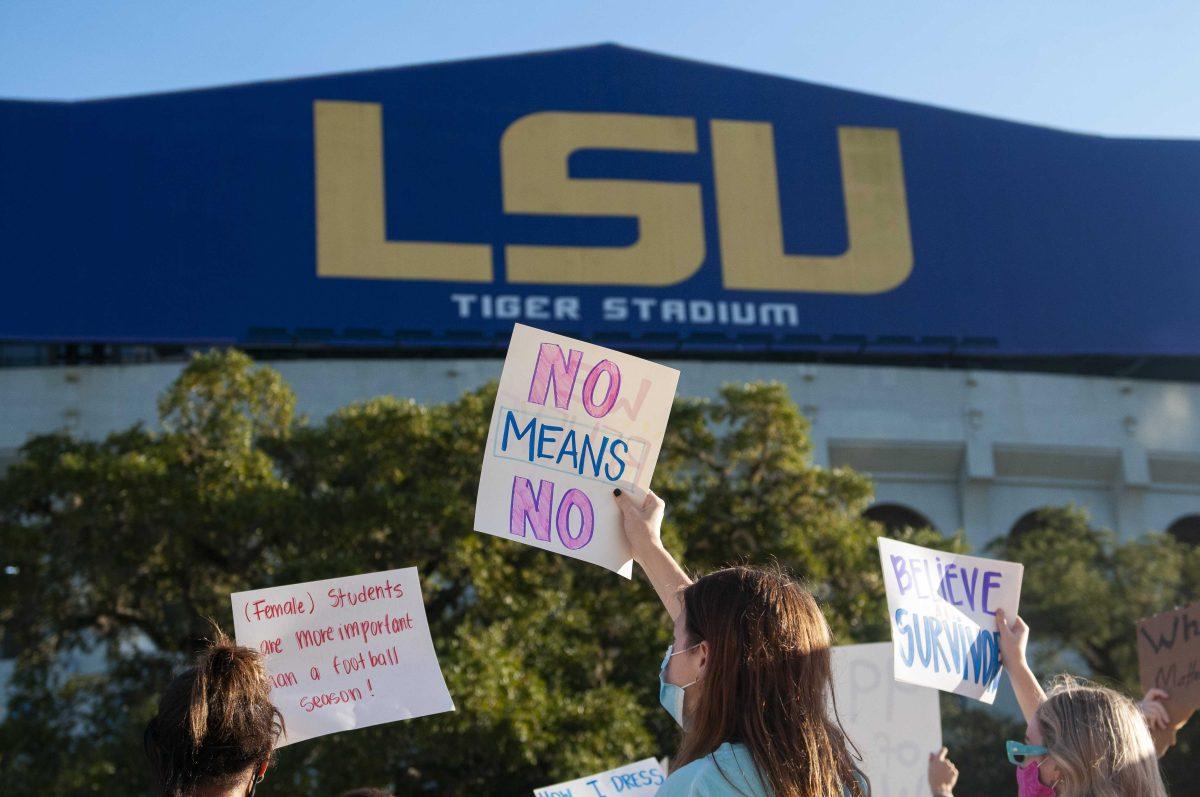On April 14, 2018, Executive Deputy Athletic Director Verge Ausberry received a text message from wide-receiver Drake Davis concerning an argument with his romantic partner Jade Lewis that read, in part:
“She’s trying to go to compliance for me hitting her, she’s trying to get me kick[ed] off the team. […] And I hit her in the stomach.(which is not good).”
Ausberry told no one – not the Title IX Office, as required by University policy, or even Meriam Segar, athletics’ problematically-dubbed unofficial Title IX reporter. His explanation for not doing so was “not credible,” found Husch Blackwell, the law firm retained by the University to investigate its Title IX scandal.
Meanwhile, the beating Davis admitted to Ausberry had left Lewis with a broken rib, and in the coming weeks, Davis would strangle her and threaten that he “might kill” her.
In a different scenario, the inaction of Ausberry and other culpable athletics and Title IX administrators could have cost Jade Lewis her life.
One would suspect that being complicit in violence against a student would warrant termination from the University, but not here, where money and reputation too often triumph student safety.
Instead, the University gave a 30-day unpaid suspension to a man they pay half-a-million dollars a year and ordered him to complete sexual violence training. This meager punishment, testimony at the state capitol suggests, may not have even been fully enforced.
Interim President Tom Galligan and the Board of Supervisors justified the decision by framing the Title IX scandal as an institutional failure, not an individual one. And while it is undoubtedly true that there have been profound, systemic shortcomings in Title IX compliance, this cannot excuse the actions of those that could have – and should have – done better.
While there were certainly dangerous flaws in the wording of the University’s Title IX policies, the University cannot scapegoat poor policy wording for all of the reporting failures that have taken place over the last number of years. You don’t need perfectly worded policy to know that you should report a direct admission of domestic abuse. It is exceptionally difficult to believe that Aubserry’s failure to report came from a misunderstanding of Title IX policy. Simply put: there is no institutional excuse for Ausberry’s actions, and the administration’s attempt to make one is dishonest.
Many members of the campus community were disappointed by the University’s punishment, demanding Ausberry and Segar’s resignations.
So, in late-April, the University, in step with its continuously ungraceful response to the Title IX scandal, announced a new sanction against Ausberry: a one season ban from football games.
This new measure almost feels more outrageous than if the University had done nothing more at all. By deeming a season of football games equivalent to the gross negligence committed by Ausberry, the University diminishes the seriousness of his offenses.
A football ban is a punishment befitting a misbehaving high schooler, not a powerful administrator complicit in the abuse of a student. Of course, that’s to suppose that Ausberry operated outside of his unspoken job description in his suppression of information that would harm the athletic prowess of the almighty LSU Tigers – an assumption that lacks total confidence given the University’s lackluster response to this revelation.
The University can make all the excuses in the world, but the situation is ultimately quite simple: a football player admitted to Verge Ausberry that he hit his girlfriend, and Ausberry swept it under the rug. The law firm hired by the University found his explanation for doing so doubtful, and the University has so far ignored that finding.
This leaves our community to grapple with an uncomfortable question: What is the moral character of an institution that does not deem such actions a fireable – or even demoteable – offense?
One step on the University’s Title IX action plan is “accepting accountability.” With administrators who have participated in grave injustices against survivors getting away with a slap on the wrist, students are yet to see if that is a commitment the administration takes seriously.
Claire Sullivan is an 18-year-old coastal environmental science sophomore from Southbury, CT.





